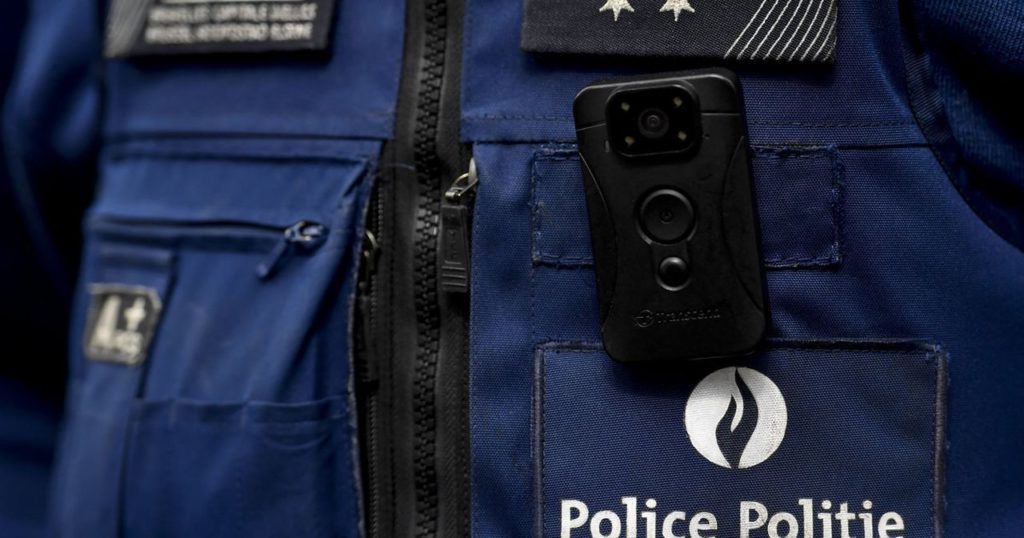The use of bodycams by police is likely to be increasingly common in Belgium, according to a recent report by a police oversight body.
A report published in May by the Supervisory Body for Police Information (OCIP/COC) said that it was "practically certain" that bodycams would become a "structural" part of police uniforms in the foreseeable future.
In Brussels, at least two police zones have already purchased some bodycams which are being used at a limited capacity on on-the-ground interventions, Bruzz reports.
Related News
- Coronavirus: Police officers to wear bodycams
- Arrest in Uccle: Police officers' technique was 'entirely legal'
- All Namur police to wear bodycams: a first in Belgium
The Marlow police zone (responsible for Uccle, Auderghem and Watermael-Boitsfort) and the Brussels-West police zones (which serves Molenbeek, Koekelberg, Jette, Ganshoren and Berchem-Sainte-Agathe) have each made some 30 t0 40 cameras available for their intervention teams.
"It has a calming effect on both sides," Marlow Commissioner Philip Vanhees said. "An image is a thousand times more expressive than words and if the police make the images themselves the ratio is normalised."
The Brussels-Ixelles police zone use, which did a pilot test of bodycams, also spoke positively of their use, saying they give a "full picture" of all the parties involved.
But the use of the cameras is far from being the norm in Brussels, where four out of the area's six police zones are operating without them due to a host of legal, financial and administrative reasons.
The Midi-police zone, which patrols the southern municipalities of Saint-Gilles, Anderlecht and Forest, has not yet tested the cameras on officers because of lack of funds.
The police zone is currently under a judicial investigation for a deadly police chase in which a 19-year-old died, and also said it would launch an internal investigation after bystander videos of officers handcuffing two minors caused outraged among residents.
The North police zone (Schaerbeek, Saint-Josse and Evere) said that they were waiting for the mayor's authorisation while the Montgomery police zone (Etterbeek, Woluwe-Saint-Pierre and Woluwe-Saint-Lambert) said they were waiting for legislation to be rolled out on the use of the cameras.
In its report, the OCIP said that a central sticking point that still blocked the appropriate use of bodycams was that there was still no consensus over when and how they would begin recording.
The OCIP recommended to more precisely define the notion of "police intervention," and for police zones to do so in a coordinated manner, in order to have a uniform agreement on when and how the body could begin capturing images and sound.
Gabriela Galindo
The Brussels Times

